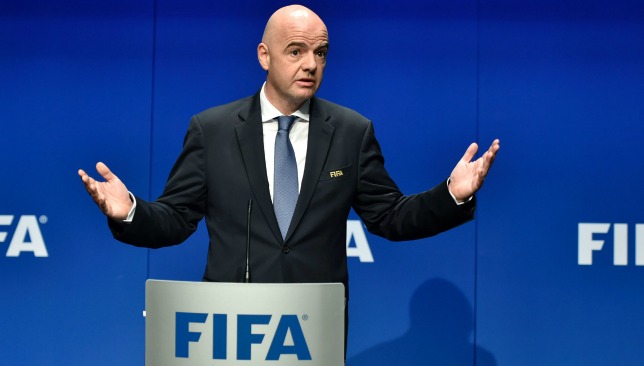
Over the next nine and a half years, which will doubtless end up feeling like a lifetime for those who oppose the move, we will inevitably hear a great deal about how the newly expanded 48-team World Cup Finals will be a wonderful thing.
You can see the phrases flowing off the pages of FIFA’s press releases already: “Global game… social inclusion…fiesta for the people… one game, one language…celebration of football…bringing the world together…uniting nations…” and on, and on.
Don’t be fooled for one second.
Although it’s true that the players and fans of 16 nations will be delighted to be included when they otherwise would have stayed at home, FIFA’s decision has nothing to do with spreading joy or encouraging the sport’s ongoing growth.
The decision has been motivated by one thing, and one thing only: dollar signs. From a commercial point of view, expanding the number of teams participating in the World Cup by 50 percent is a fabulous move.
Broadcasters will be happy, because they will have more games to fill their schedules. Consequently, advertisers will be happy because more games means more cumulative viewers. Sponsors will be happy, because more countries involved means more countries in which they can peddle their officially branded wares. More, more, more! As far as the moneymen are concerned, the attraction is obvious and undeniable.
The problem is, however, that the mantra of ‘more’ will not apply in one crucial aspect: the quality of football.
As anyone who yawned their way through the bore-fest of Euro 2016 can attest, international football is on the precipice. If you compare the quality of the product with say, domestic and European football, there’s no doubt which is the more attractive. Their growth over the next 10 years could sink international football further into the realms of irrelevance.
Why? Because international football is packed with teams who rely on defensive organisation and occasional tentative counterattacks.
There’s a good reason for that: in an increasingly tactical sport, international teams simply don’t meet up regularly enough to develop the kind of intuitive understanding which is necessary to create incisive attacking play.
When time is limited, it’s far easier for coaches to concentrate on the basics of defensive discipline, taking the need to avoid losing – rather than trying to win – as their starting point. With a 48-team World Cup, that situation will intensify through the inclusion of even weaker teams than ever, whose ambitions will be limited to drawing 0-0 or nicking a 1-0 from a set-piece.
That's it, I'm done. I am now, from this moment, officially retiring from international football.
— Andy West (@andywest01) January 10, 2017
So the football will likely get worse as will the enthusiasm, but there’s no point complaining because the decision has been made, and past history tells us that when FIFA have decided something – no matter how ridiculous or controversial it might be – they do not change their minds.
Rather than fretting about a 48-team World Cup, indeed, we should be more concerned about the question of where it will all end.
No doubt FIFA boss Gianni Infantino and his buddies, who are not exactly struggling when it comes to a sense of their own importance, are nowhere near finished yet. After all, football is the global game. The World Cup Finals is its global event. So why not gradually turn the World Cup into the Olympics of football, with the ultimate aim of ensuring that every single nation on earth is included.
Don’t laugh! They’re probably huddled together in a Zurich hotel suite right now, poring over their plans for a 196-team World Cup (or 195 if you exclude Taiwan…tricky political one there, Mr Infantino).
By 2034, they should be ready.
OFFICIAL: FIFA confirm World Cup will have 48 teams from 2026
— Man Like Robbie (@MLRobbie) January 10, 2017
👥 Groups: 1⃣️6⃣️
📅 Days: 3⃣️2⃣️
⚽️ Matches: 8⃣️0⃣️
🏆#WorldCup pic.twitter.com/Cp9tEqpfTn